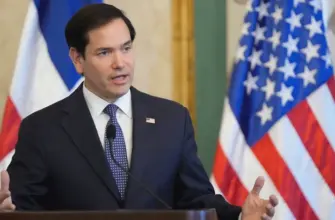Echoes of the Past, Shadows of the Future
After serving with the Allies during World War II, Peter Rachman, a former soldier in the 2nd Polish Corps, found his name unexpectedly entering the lexicon—not through heroism, but as the embodiment of exploitative landlordism. His post-war life saw him build a property empire founded on questionable practices: subdividing housing to circumvent rent control and charging exorbitant rates to vulnerable tenants, particularly West Indian migrants.
Rachman’s associations extended beyond mere business; he cultivated relationships with figures like Christine Keeler and Mandy Rice-Davies from the Profumo scandal, and maintained connections with notorious gangsters, the Kray twins. His legacy, however, wasn’t personal gain but legislative reform. The 1965 Rent Act, born in response to his methods, enshrined security of tenure for renters, effectively preventing a recurrence of such predatory practices.
The term “Rachmanism” was coined to describe the systematic exploitation and intimidation of tenants by unscrupulous landlords—a stark warning against unchecked power. While Donald Trump shares little resemblance to Rachman beyond ambition, the question arises: will his actions similarly leave a linguistic mark on history?
Consider the possibilities:
- Trumpism – could it signify more than a fleeting political movement?
- Trumpery – might this term come to describe nonsensical pronouncements, perhaps those shared in all-caps on social media platforms?
- Or will history simply redefine the word “Trump,” turning it into an ultimate insult?
Of course, a different outcome is possible. History might view Trump’s presidency as he seemingly does: as a triumph.
“A GENIUS. A MASTERMIND. THE TOPMOST, BESTEST EVER LEADER IN THE UNIVERSE,” reads the self-assessment.
However, that judgment remains contingent on how the world navigates the aftermath of his time in office.
The current 10% tariffs imposed by his administration are a minor economic boon for Britain, compared to what would have been faced had the UK remained within the European Union. However, this benefit is overshadowed by concerns—particularly for the approximately 14,000 British firms engaged in trade with the US.
Keir Starmer’s attempts to offer some relief – easing emissions regulations for certain industries – are deemed inadequate. Warnings from prominent figures like Federal Reserve Chair and JP Morgan Chase CEO suggest a more troubling economic landscape lies ahead: higher inflation, slower growth, and potentially recession—a scenario some economists already believe the US is experiencing.
Trump’s impact on global wealth thus far has been a dramatic reduction of $10 trillion from worldwide equity markets and a loss of $135 billion for Elon Musk. This instability threatens American pension funds, with retirees reportedly drawing down their savings to cover emergency expenses. One Wall Street analyst ominously predicted “a self-induced, economic nuclear winter.”
The repercussions extend globally, including the United Kingdom. The current US President appears to wield disproportionate influence on British policy.
A planned White Paper concerning immigration and adjustments to the points-based visa system has been postponed due to concerns about its potential impact on businesses employing foreign workers—exacerbated by existing tariffs. Even agreements such as the Chagos Islands deal appear subject to Trump’s approval, leaving Whitehall uncertain if he fully understands or even agrees with the terms.
“We can’t even give our own stuff away without Mr. Trump’s say-so,” one official lamented.
Beyond these immediate economic and political concerns, anxieties linger regarding climate change. Efforts to achieve net zero targets face a significant setback following the President’s “drill, baby, drill” policy, effectively pushing back progress by an estimated decade.
While investment in biofuels and renewable electricity had been steadily advancing—with Shell aiming to halve operational emissions and reach methane neutrality by 2030—BP recently announced a shift away from some of its green goals, intending to produce 60% more oil and gas than originally planned. The goal of achieving net zero by 2050 now feels increasingly distant.
Today, the word “Rachmanism” is rarely spoken. And if warnings about a warming planet prove true, “Trumpism” may fade from conversation as well.







